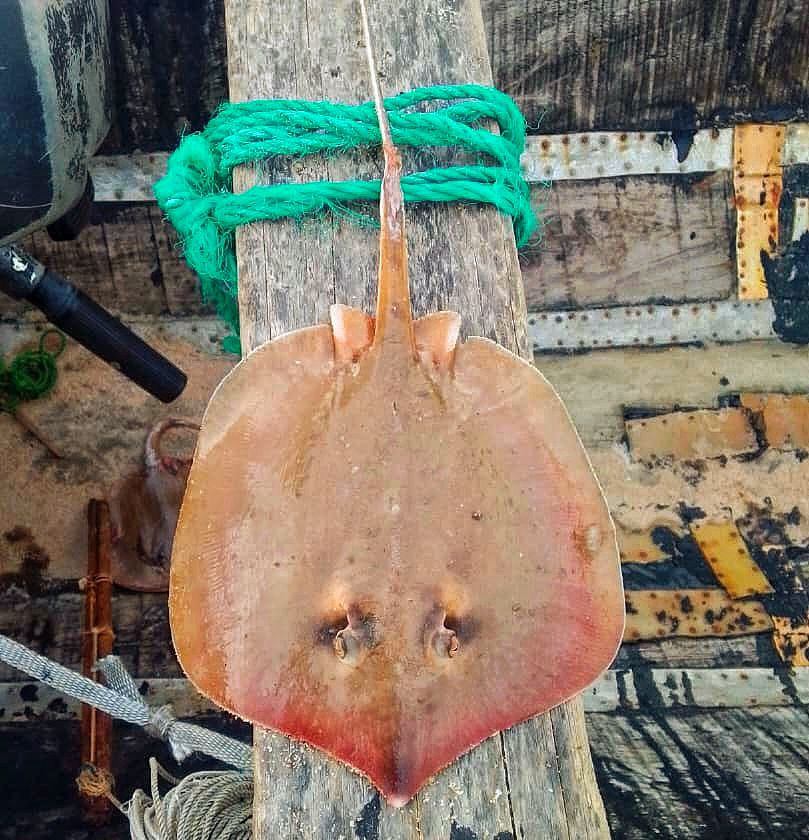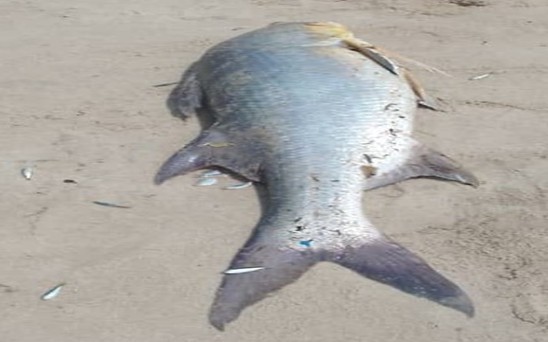
Turning the Tide: Monitoring and Protecting Marine Life in Ibeju-Lekki
A recent report by the International Union for Conservation of Nature (IUCN) delivers a sobering reality: one-third of the world’s sharks, rays, and chimaeras face extinction due to overfishing, habitat destruction, and climate change. This alarming trend threatens marine biodiversity and disrupts delicate ocean ecosystems, reinforcing the urgent need for decisive conservation action.
The global demand for shark meat has nearly doubled, with the value of shark and ray meat now 1.7 times higher than the global fin trade. Trade in shark and ray products has diversified, with items such as ray gill plates, liver oil, and skins valued at nearly USD 1 billion annually.
In Nigeria, the primary traded products are shark fins and meat, while rays are mainly harvested for their meat. Fishers remove shark fins immediately after capture, preserving them fresh before drying them for domestic sales or export. The dorsal and pectoral fins are the most sought-after, but anal and caudal fins are also traded. This intensifying exploitation puts immense pressure on marine populations and makes conservation efforts even more critical.
Importance of Sting Rays and Sharks to the Marine Ecosystem
The sting rays and sharks are from the same large group called elasmobranch; these are animals that have skeleton made of cartilage rather than bones. You might just wonder, of what use are these creatures to the ecosystem? But don’t be deceived, they are a very important component of the marine ecosystem. Here are a few ways they contribute to the balance of the ocean as we know it:
Marine Engineers: In their search for food, sting rays dig up sand and sediments which creates pits that provide micro-habitat and hideouts for smaller invertebrates. This process is called bioturbation. Bioturbation helps with proper oxygen penetration and nutrient circulation on the ocean floor.
Food Chain Balance: Sting rays feed on small invertebrates like mollusca, plankton, crabs, shrimps, and crayfish. Thus, helping to regulate the population of these prey species. Conversely, they also serve as preys to bigger predators like sharks, seals, and whales.
Improving Climate Action: Sharks frequent activity close to the sea grass helps them double as crowd-controllers. Their patrol of these areas helps prevent overgrazing of the sea grass by turtles thus increasing carbon capture.
Ibeju Lekki: A Coastal Haven For Critical Marine Biodiversity
Nestled along Lagos’ coastline, the Ibeju Lekki community is home to diverse marine life, including important fishes like the Atlantic stingray (Hypanus sabinus)—a crucial indicator of the area’s ecological health. As part of the ray family, these creatures help maintain the balance of marine food chains. However, habitat degradation, pollution, and human activities continue to place them at risk. This coupled with their slow growth and maturity rate has further increased the pressure of human activities on the rays.

Additionally, the Atlantic tarpon (Megalops atlanticus), classified as vulnerable by the IUCN, has also been recorded in the area. This highlights the significance of Ibeju Lekki’s unique marine and terrestrial ecosystems, making conservation efforts in this region even more critical. Without urgent intervention, the impact of anthropogenic activities and climate change could have irreversible consequences in this area and other similar sites across the nation’s coast.

Voices from the Fishing Community
Local fishermen play a crucial role in Ibeju Lekki’s marine economy and are firsthand witnesses to the changes happening in the ocean. Many have observed a decline in ray and shark populations over the years.
“Previously, when 20 fishing boats went out to sea, each boat could catch around 10 large bowls of stingray fish. Now, even with just 10 boats, each struggles to catch even three stingrays.“ says Saheed, a fisherman from the community exclaiming on how drastically the population has reduced.
Another fisher, Jimoh, notes the economic importance of stingray due to its huge request from outsiders who comes to the community to buy it on a large scale: “Although stingray fish is not highly valued in this part of the coast, it significantly contributes to our income through trade, as many buyers come in large numbers to purchase it. However, its decline has partly jeopardized our livelihood.”
These insights highlight the delicate balance between economic survival and conservation. Sustainable fishing alternatives, along with education and alternative livelihoods, could help protect marine species while supporting the local community.
NCF’s Commitment to Conservation
As part of the Nigerian Conservation Foundation’s (NCF) mission to protect Nigeria’s natural heritage, we have launched targeted conservation initiatives in Ibeju Lekki, including:
- Community Engagement: Partnering with local fishermen and stakeholders to raise awareness about marine conservation.
- Species Monitoring: Conducting research to track marine biodiversity and assess environmental changes over time.
- Conservation Education: Educating residents, especially the younger generation, on sustainable practices to safeguard marine ecosystems.
Through these efforts, NCF aims to advocate for the establishment of Marine Protected Areas (MPAs) in Ibeju Lekki and other marine hotspots. Such a designation would provide a sanctuary for marine species, ensuring their survival for generations to come.
A Call to Action
Conserving marine life requires a collective effort. We urge policymakers, researchers, environmentalists, and the public to support initiatives that protect Nigeria’s rich coastal biodiversity. By championing sustainable fishing practices, reducing pollution, and supporting conservation programs, we can secure a healthier future for our oceans and the communities that depend on them.
Join NCF in our commitment to marine conservation. With your support we can turn the tide for endangered marine species and preserve the wonders of our oceans.



